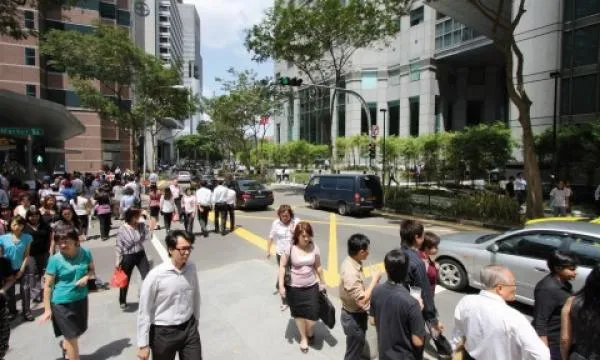
Singapore office rents could “fare better than anticipated” in 2021: Savills
Headline CBD Grade A office rents are projected to fall by 5% to 6% this year..
Following the phased resumption of economic activity after the Circuit Breaker period and the re-opening of major economies as they emerged from lockdowns, advance estimates by the Ministry of Trade and Industry (MTI) showed that Singapore’s gross domestic product (GDP) in the fourth quarter of 2020 expanded by 2.1% QoQ. For the third quarter, QoQ growth was 9.5%.
According to Savills, on a YoY basis, the economy contracted by 3.8%, albeit an improvement from the 5.6% contraction in Q3/2020. Among the services sectors, only the information & communications, finance & insurance and professional services sectors collectively expanded by 0.2% YoY, a reversal from the 0.2% contraction in Q3/2020. This was supported by stable growth in the information & communications and finance & insurance sectors. For the whole of 2020, Singapore’s GDP fell by 5.8%.
Here’s more from Savills:
Despite uncertainties from the COVID-19 situation, the Ministry of Manpower (MOM)’s preliminary estimates on the overall unemployment rate eased for a second consecutive month to 3.2% in December 2020. The stabilisation in the unemployment rate was supported by government initiatives such as the Jobs Support Scheme, as well as SGUnited jobs and traineeships. Nevertheless, the unemployment rates (overall, resident and citizen) for 2020 were higher than in 2019 but still lower than the figures during SARS in 2003 and the Global Financial Crisis in 2009. Growth sectors such as information communications and technology, financial services and professional services saw improvements in employment numbers. However, uncertainties in the economic environment, along with weak global demand will continue to exert downside pressure on the labour market.
Owing to seasonality factors, compared to the other quarters in the year, office leasing activity was generally more muted in Q4. Nevertheless, it was observed that activity levels in the office leasing market remained relatively flat on a YoY basis. Demand for office space largely emanated from tenants that are looking for replacement space as they need to move out of buildings such as AXA Tower and Fuji Xerox Towers, which are slated for redevelopment from H2/2021.
On top of that, there was also notable activity from tenants with office leases due for renewal. However, for the latter group of office occupiers, they may consider downsizing due to economic uncertainties created by the pandemic. While there was an increase in shadow space, for the quarter in review, these were comfortably taken up by other companies.
Although Singapore progressed to Phase Three of reopening of the economy on 28th December 2020, the work-from-home (WFH) arrangements remained, with WFH the default mode of working. Also, not more than half of a company’s employees can be at their workplace at any point in time. Therefore, while there had been an improvement in the number of people returning to their offices, a significant proportion continued to WFH. Owing to the uncertainties from the pandemic, tenants are continuing to adopt a wait-and-see attitude and looking for clarity on trends regarding future workplace practices before deciding on office space requirements.
Nevertheless, the office market still saw relatively significant leasing deals from technology companies. Lazada and Alibaba Group will be moving out of AXA Tower to 5One Central, where they have taken up 150,000 sq ft of office space. Additionally, TikTok also signed up nearly 60,000 sq ft of space at Guoco Tower, which was formerly occupied by Dentsu Aegis Network. This additional demand came after TikTok had taken up close to 100,000 sq ft of space at One Raffles Quay South Tower.
It is observed that technology companies, particularly Chinese firms, are expected to continue expanding their presence in Singapore, which is deemed as an attractive base due to its political stability, strategic position and strong economic fundamentals. It is also separately observed that there has been an increase in enterprise solutions provided to multinational corporations by coworking providers.
The latter are offering “core-and-flex” models which provide cost savings and flexibility, especially during this period where staff are on various work arrangements while business conditions remain challenging. More co-working providers have also engaged in management contracts with landlords, which serve as a win-win situation for both parties.
While there were more strata unit transactions, whole block transactions in Q4/2020 were slightly muted. In the final quarter, only one office block was transacted, which was Keppel Land’s divestment of its 100% interest in Keppel Bay Tower, an 18-storey office building located near HarbourFront MRT station to Keppel Real Estate Investment Trust (REIT). The deal was based on an agreed property value of S$657.2 million, inclusive of rental support of up to S$3.2 million.
Demand & Vacancy
Based on the CBD Grade A offices tracked by Savills, net demand entered the positive territory of 396,000 sq ft in Q4/2020, a reversal from the past two quarters of negative net demand. The strong numbers were largely led by the occupancy of newly completed buildings such as 9 Penang Road and 30 Raffles Place. For 9 Penang Road, the sole tenant UBS Singapore moved from office space at One Raffles Quay and Suntec City. The vacancy rate of CBD Grade A offices inched up by 0.2 ppts QoQ to 7.0%, with significant increases largely observed in Marina Bay and Shenton Way of 3.8 ppts and 6.4 ppts respectively. For Shenton Way, the large growth in vacancy was due to the inclusion of 79 Robinson Road into the office stock.
For the whole of 2020, the net take-up of Savills basket of CBD Grade A office buildings declined significantly from 1.0 million sq ft in 2019 to around 221,000 sq ft. This was the lowest since the Global Financial Crisis in 2009, when net take-up was a negative 354,000 sq ft. The slower demand along with the increase in new supply of nearly 1.2 million sq ft resulted in the overall vacancy rate of CBD Grade A office buildings rising by 2.6 ppts YoY to 7.0% in the final quarter of 2020.
Rents
The average monthly rents in Savills basket of CBD Grade A offi ces fell for a fourth consecutive quarter by 1.8% QoQ to S$9.52 psf in Q4/2020. On a yearly basis, CBD Grade A offi ce rents declined by 5.6%, a reversal from the 2.9% growth in 2019. This was due to sluggish offi ce demand amid weaker economic conditions arising from the Covid-19 pandemic. For companies with leases up for renewal, some are looking to downsize. Despite the expected withdrawal of the government support schemes in 2021 and tenants shedding more space, we do not expect any sharp decline in rents due to limited new supply and demand from tenants displaced from buildings which will be redeveloped.
Outlook
The MOM carried out a poll of companies in December 2020 and found significant improvements in business sentiments and economic conditions. The proportion of polled companies in December 2020 with intentions to reduce salaries and headcount in the next two months fell to 2.8%, which was the lowest since the polls started in March 2020 and significantly lower than the peak of above 20.0% in May 2020.
Apart from demand emanating from tenants in buildings awaiting redevelopment, technology companies have been another major source of demand for office space. This has been evident from various technology companies such as Tencent, ByteDance and Amazon taking up significant space in office buildings. To attract technology entrepreneurs and business leaders, since January 2021, Singapore has begun issuing a new work permit called Tech.Pass. This is an extension of the Tech@SG program launched in 2019, enabling these companies to obtain talent for the scaling of their business locally and regionally. This will serve to further enhance Singapore’s position of a regional tech hub.
As companies await clarity by the government on easing of workplace restrictions, it is expected that the WFH arrangement will continue in the short term. WFH provided employees another working option and companies may choose to adopt a hybrid of both office and flexible workspace options. Should this be the norm, it may result in companies rethinking their space options, and they may downsize or adopt more efficient office layouts. Nevertheless, the need for office space remains invariant for two kinds of industries. One is the tech sector where despite employees being issued long dated WFH orders, employers still want them to return to the communal office for a greater exchange of ideas. The second are financial trading entities such as hedge funds, quant and high frequency traders where WFH cannot guarantee security nor minimise latency in trade execution.
With the office tenancy landscape being increasingly dominated by the tech sector, the populist view that the pandemic catalysed WFH culture will cause the overall annual take-up to shrink is by no means cast in stone. Ultimately, if the economy becomes populated with even more tech firms, office space demand may expand at an even more rapid pace due to their belief that face-to-face co-mingle and collaboration engenders greater productivity and creativity than those held within video meeting rooms. The same can be said of financial trading companies but their need to work in a proper office set up is born out of the need for trading and data security plus a reducing latency in order execution. And if more of these companies set up here, their ecosystem will spawn greater business opportunities for old economy companies who serve them, who will in turn upsize their office footprint.
Therefore, the counteracting force against office demand may not be the WFH culture which grew from the pandemic but could instead arise in the long term from companies who wish to reduce their carbon footprint and encourage their workers to make fewer work-related trips. However, the long term can be easily managed with reduced government land supply for new commercial developments. Over the next two years, given a rather constrained supply pipeline of CBD Grade A offices, the risk is on the upside, meaning rents may rise rather than fall in the medium term.
With weaker office demand anticipated amid uncertainties from the pandemic and limited new supply, office rents are expected to decline by 5% to 6% in 2021. This decline is, in our view, short-term because the risk that tech and financial trading companies are expanding faster than the contraction amongst old economy firms is becoming greater over time. And framed within the context that more vaccines have been and will be discovered and vaccination programs accelerated, it is quite clear that there is light at the end of the tunnel. Our expectations of a 5% to 6% decline should thus be recast as a distribution that is skewed to the right, where the right tail falls in the lower ranges of growth.


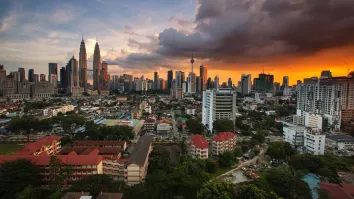



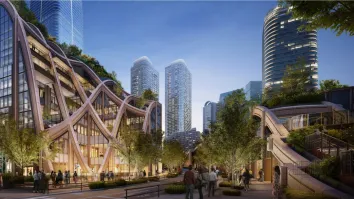
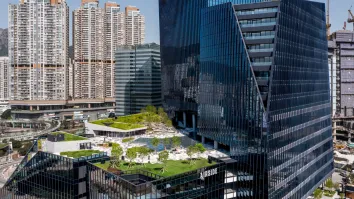

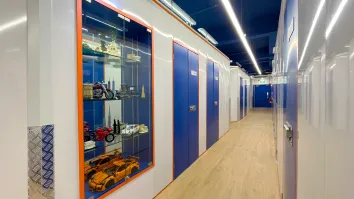




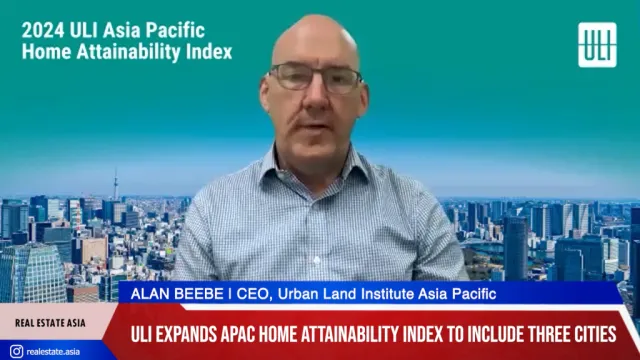

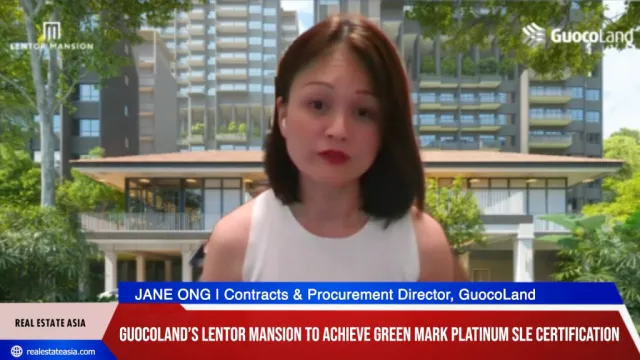

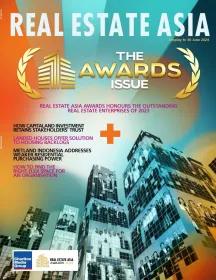
 Advertise
Advertise






